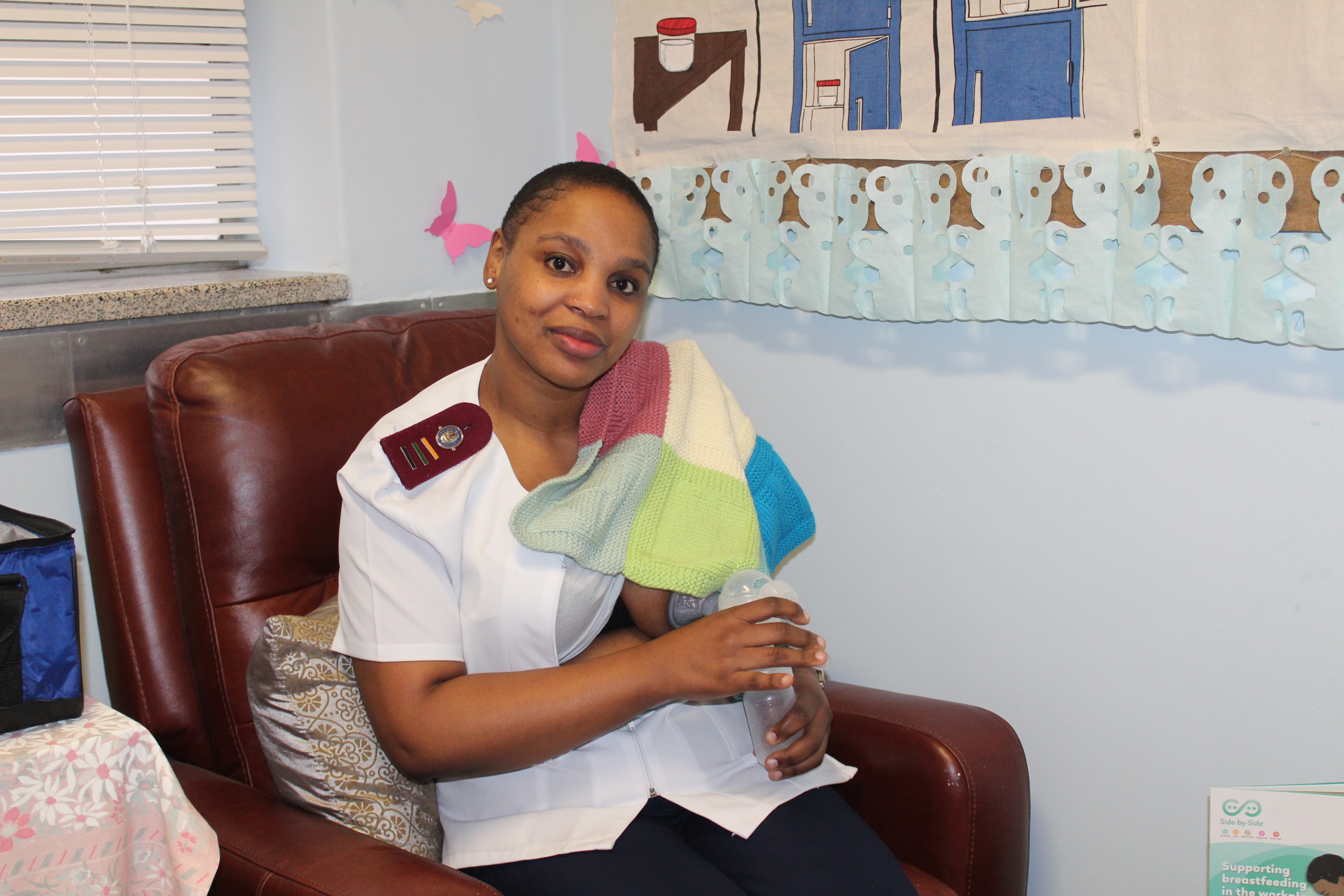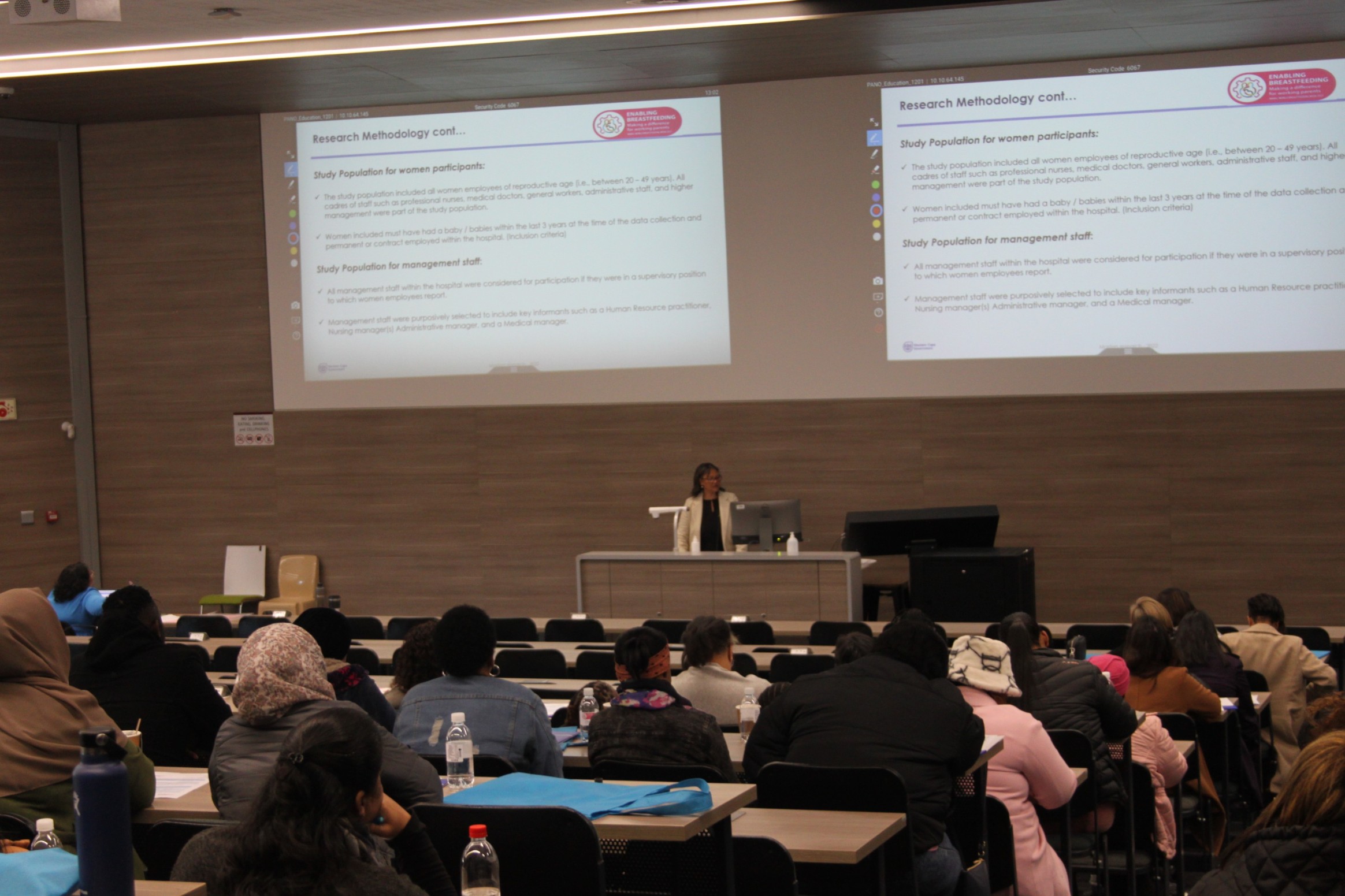
News
Western Cape is committed to enabling breastfeeding for working parents
Working mothers face many challenges and need support from their spouses, families, friends, employers, and healthcare professionals to maintain breastfeeding. By supporting women on their breastfeeding journey, we are helping to ensure a brighter and healthier future for their child, and our communities.
The Western Cape Department of Health and Wellness, together with the City of Cape Town and other health authorities, advocate for exclusive breastfeeding where possible, as part of the provincial breastfeeding restoration plan which aims to have at least 50% of mothers who are physically able to, to breastfeed their babies.
Following the recent Western Cape breastfeeding seminar hosted by the department, various stakeholders explored possible solutions to reduce the obstacles that working breastfeeding mothers face when returning to work. Under the World Breastfeeding Week (1 – 7 August) theme, “Enabling breastfeeding: making a difference for working parents”, the seminar focused on breastfeeding and employment and showcased the impact workplace support and emerging parenting norms on breastfeeding through the lens of parents themselves.
“The Western Cape was pleased to host this seminar, which looked at the benefits of breastfeeding, policies around breastfeeding in the workplace, and how workplaces can move towards becoming breastfeeding-friendly spaces. Workplace challenges remain the most common reason why women stop breastfeeding earlier than recommended.
Therefore, the department was particularly pleased to have engaged individuals and organisations working in the First 1000 Days initiative space to enhance collaboration and support for breastfeeding. Providing a valuable source of support to working mothers for whom maintaining breastfeeding after returning to work is challenging can make a big difference and help ensure optimal growth and development of the infant.” said Dr Hilary Goeiman, Director of Services Priority Coordination at the department.
At the seminar, Tygerberg Hospital dietitian, Crystal Jacobs, spoke about the importance of maternity protection and the potential implications for breastfeeding on return to work at a tertiary hospital. “Children who are breastfed have a lower chance of getting sick than those who are not. Therefore, combining work and breastfeeding is not only possible but vital for the mother and child.”
Tygerberg Hospital is one of many health facilities in the province that support staff returning from maternity leave, as dedicated time and space are provided to them to breastfeed or express their milk. The infrastructure at the hospital is comfortable, and private spaces are available for use. It is also equipped with a refrigerator for storage of the express breastmilk.
Sr Judy Ngxanga, 31-year-old professional nurse from Blue Downs working in the hospital’s paediatric emergency ward, said: “I feel very privileged to have this lactation room because I can express in private where I won’t be disturbed or interrupted. Other moms also use this room where we support and encourage each other.”
The first 1000 days of an infant’s life is crucial for growth and development, and breastfeeding in this period can assist to yield the best health outcomes over the long term. Breastfeeding is recognised as the most effective way to feed an infant to ensure optimal development and growth. It contributes to positive long-term health outcomes not just for the infant but the mother. Please reach out to our clinics and get all the information that you need to make informed choices around breastfeeding.





